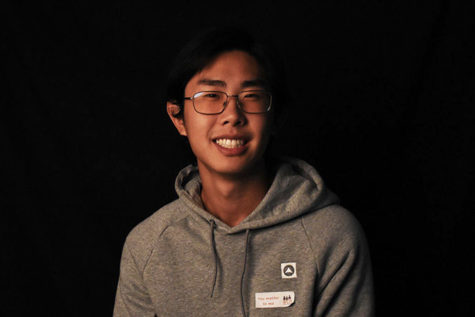Volunteering her time as a medical intern at Wild Bird Rehabilitation Center (WBR), junior Carly Anderson works doing various activities, ranging from spraying down old cages to digging up worms.
Initially, Anderson was not excited to work for the rehab center, and she did not intend to work there long.
“Working with the WBR started as a way for my family and [me] to spend time together over the summer while also contributing a little something to the community. I was a little disappointed at first because if I had the choice, I would have been working with baby raccoons and rabbits at the Wildlife Rescue Center,” Anderson said. “But because of their age restrictions, WBR was our only option if we wanted to work with animals.”
As she progressed, Anderson started to have a change of heart, growing more comfortable and seeking more training.
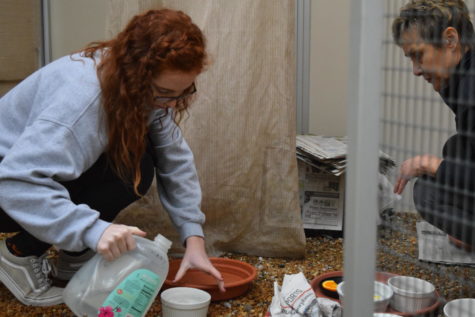
Anderson grabs the bird’s cup and refills it with water.
“After we went through the initial training, I was dead-set on not having anything to do with the medical work and only spend my time with the baby birds,” Anderson said. “As time went on, I became more and more comfortable around the Emergency Room and Nursery, and I decided to take my training a step further.”
The notion of “out of sight, out of mind” never occurred to Anderson until she started working more, eventually learning more about the unique personalities each bird possesses.
“Before I started volunteering for WBR, I never really gave birds a second thought, but the more time I’ve spent with them, the more obvious it is that each bird really has its own personality and attitude,” Anderson said. “I’m pretty adverse to change, but WBR has taught me to keep my options and mind open because there is no telling how things will turn out until you try them, and seeing how I’ve grown since I started volunteering has been really eye-opening for me in terms of future career options and interests outside of school.”
With her increasing experience in the health industry, Anderson is inspired to further improve her skills and pursue health services, even considering it to be a potential career.
“I am leaning towards a career in health services, but whether I’ll be working with people or animals is something I am using this experience to try and figure out,” Anderson said. “I think doing what I do is really unique, and it provides a lot of insight and exposure to the medical field and sides of nature that I would otherwise know nothing about. I really enjoy learning the science behind certain medical procedures and treatments and trying to connect that to what a doctor would do in a hospital for people.”
Not planning to stop, Anderson has been volunteering since May.
“I have been working really hard to make at least one shift a week since my family and I started volunteering in May, which is the start of the peak season for baby birds,” Anderson said. “As long as there are patients, I’ll keep doing what I can to help. In terms of hours, I think I’ve worked a little over 70 so far and will continue adding to that throughout the winter.”
As Anderson continues to pursue her volunteer work, she always encourages others to try and find any opportunities to help the community in general, even if it has nothing to do with their field of interest.
“I think volunteering in general is a really important thing that everybody should push themselves to do. It really helps you learn more about your community and find value in your work,” Anderson said. “I understand that not everyone has the same interests and priorities that I do, but I still encourage my friends to come out and volunteer as much as they will listen because I think having the opportunity to learn and work in an environment like this is just absolutely fascinating.”

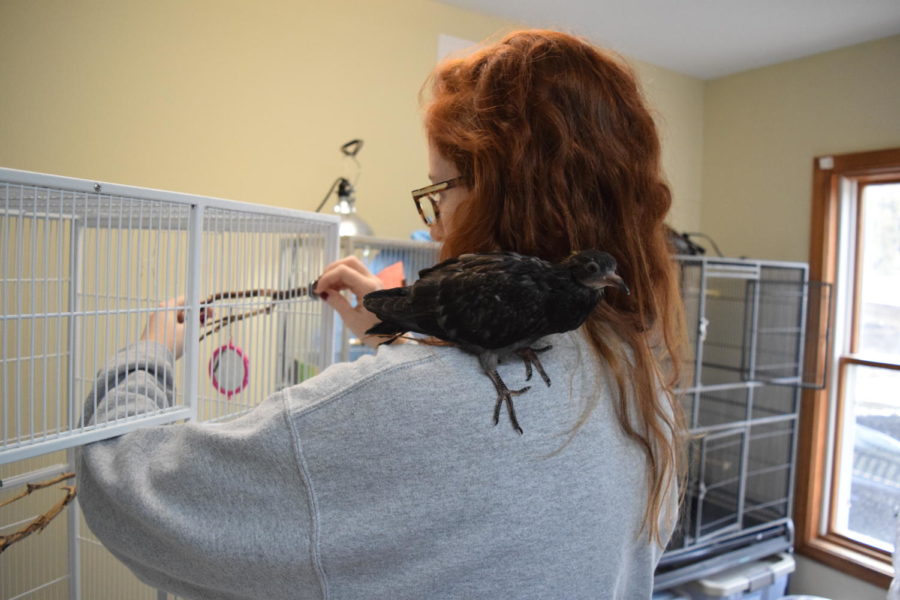

![Focused on providing exceptional service, sophomore Darsh Mahapatra carefully cleans the door of a customer’s car. Mahapatra has always believed his customers deserve nothing less than the best. “[If] they’re trusting us with their car and our service, then I am convinced that they deserve our 100 percent effort and beyond,” Mahapatra said.](https://pwestpathfinder.com/wp-content/uploads/2025/10/DSC_0018-1200x800.jpg)
![Sophomore Aleix Pi de Cabanyes Navarro (left) finishes up a soccer game while junior Ava Muench (right) warms up for cross country practice. The two came to Parkway West High School as exchange students for the 2025-2026 school year. “The goal for the [exchange] program is to provide opportunities for both Parkway students and our international exchange students to learn about other cultures, build connections and become confident, capable, curious and caring — Parkway’s Four C’s — in the process,” Exchange Program Lead Lauren Farrelly said.](https://pwestpathfinder.com/wp-content/uploads/2025/10/Feature-Photo-1200x800.png)

![Gazing across the stage, sophomore Alexis Monteleone performs in the school theater. The Monteleone family’s band “Monte and the Machine” has been releasing music since 2012, but Alexis started her own solo career in 2024 with the release of her first single, Crying Skies. “My whole family is very musical, [and I especially] love writing [songs with them],” Monteleone said.](https://pwestpathfinder.com/wp-content/uploads/2025/09/DSC7463-1200x798.jpg)
![Amid teaching a lesson to her AP Calculus BC class, Kristin Judd jokes alongside her students in their funny remarks. Judd has always enjoyed keeping the mood light in her classroom, along with on the volleyball court. “[I enjoy] that side talk where you see [or] overhear a conversation and chime in, or somebody says something funny,” Judd said.](https://pwestpathfinder.com/wp-content/uploads/2025/09/image-1200x730.jpg)
![Eyeing the ball, junior Ella McNeal poses for her commitment pictures at Clemson University. McNeal’s commitment comes after months of contact with top Division 1 soccer programs. “ It has taken a lot to get to where I am, but I know that [what] I've already been through is just the beginning, and I can't wait for what is to come,” McNeal said.](https://pwestpathfinder.com/wp-content/uploads/2025/09/IMG_4926-1200x900.jpeg)

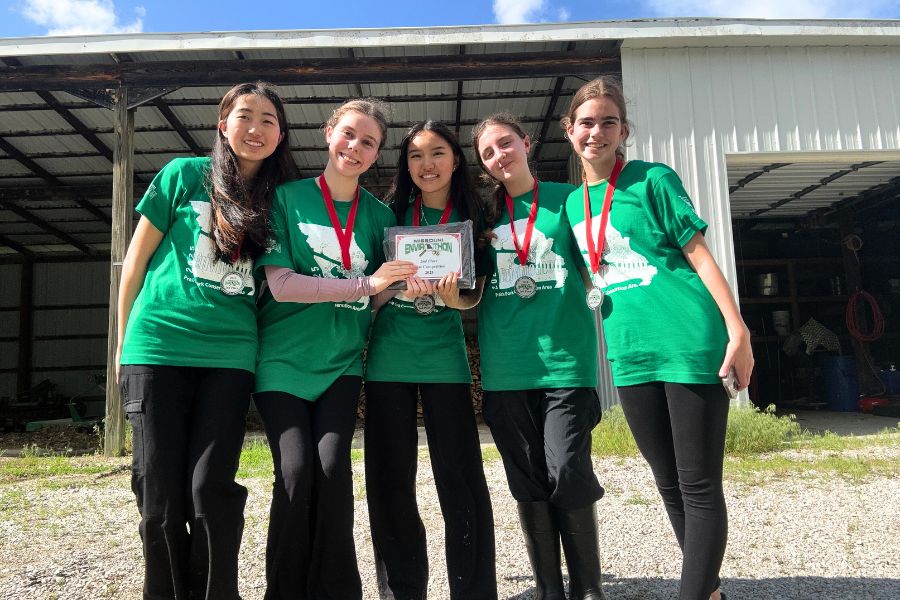
![Senior Adam Zerega stands with senior Dexter Brooks by farm equipment. Zerega often worked with friends and family on his farm. “I've been able to go to my family's farm since I was born. I [spend] at least three weekends a month [on the farm], so I'm there all the time,” Zerega said.](https://pwestpathfinder.com/wp-content/uploads/2025/04/IMG_4872-1200x900.jpg)
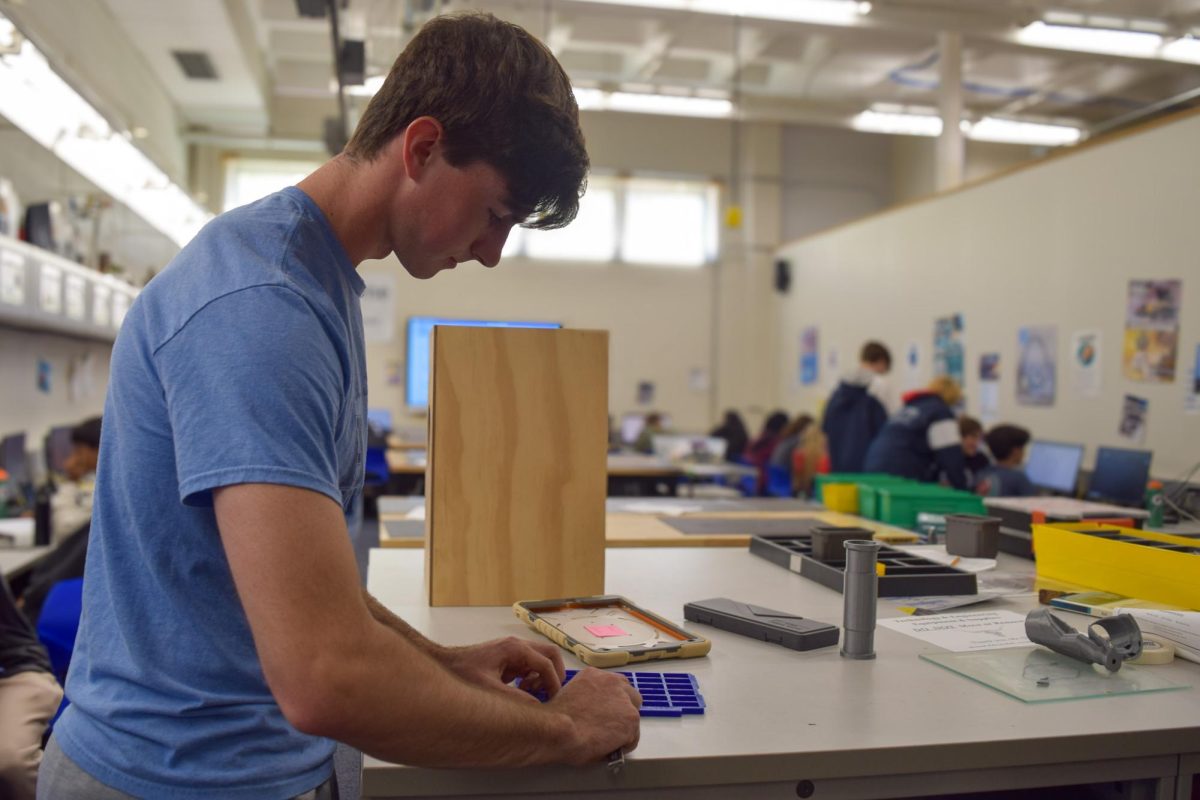
![Leaning on the podium, superintendent Melissa Schneider speaks to Parkway journalism students during a press conference. Schneider joined Parkway in July after working in the Thompson School District in Colorado. “My plan [to bond with students] is to get things on my calendar as much as possible. For example, being in [classes] is very special to me. I am trying to be opportunistic [meeting] kids [and] being in [the school] buildings. I have all the sports schedules and the fine arts schedules on my calendar, so that when I'm available, I can get to them,” Schneider said.](https://pwestpathfinder.com/wp-content/uploads/2025/09/IMG_5425-1200x943.jpeg)

![Leaping through the air, senior Tyler Watts celebrates his first goal of the season, which put the Longhorns up 1-0 against the Lafayette Lancers. Watts decided to play soccer for West for his last year of high school and secured a spot on the varsity roster. “[Playing soccer for West] is something I had always dreamed of, but hadn’t really had a good opportunity to do until now. It’s [really] fun being out [on the field], and I’m glad I decided to join the team. It’s just all about having fun with the boys and enjoying what time we have left together,” Watts said.](https://pwestpathfinder.com/wp-content/uploads/2025/09/DSC_1951-1200x855.jpg)

![Junior Fiona Dye lifts weights in Strength and Conditioning. Now that the Trump administration has instituted policies such as AI deregulation, tariffs and university funding freezes, women may have to work twice as hard to get half as far. "[Trump] wants America to be more divided; he wants to inspire hatred in people,” feminist club member and junior Clara Lazarini said.](https://pwestpathfinder.com/wp-content/uploads/2025/05/Flag.png)
![As the Trump administration cracks down on immigration, it scapegoats many immigrants for the United States’ plights, precipitating a possible genocide. Sophomore Annabella Whiteley moved from the United Kingdom when she was eight. “It’s pretty scary because I’m on a visa. When my visa expires next year, I’m not sure what’s going to happen, especially with [immigration] policies up in the air, so it is a concern for my family,” Whiteley said.](https://pwestpathfinder.com/wp-content/uploads/2025/05/DSC_0077-7copy.jpg)
![Shifting global trade, President Donald Trump’s tariffs are raising concerns about economic stability for the U.S. and other countries alike. “[The tariffs are] going to pose a distinct challenge to the U.S. economy and a challenge to the global economy on the whole because it's going to greatly upset who trades with who and where resources and products are going to come from,” social studies teacher Melvin Trotier said.](https://pwestpathfinder.com/wp-content/uploads/2025/05/MDB_3456-1200x800.jpg)

![Pitching the ball on Apr. 14, senior Henry Wild and his team play against Belleville East. Wild was named scholar athlete of the year by St. Louis Post-Dispatch after maintaining a high cumulative GPA and staying involved with athletics for all of high school. “It’s an amazing honor. I feel very blessed to have the opportunity to represent my school [and] what [it] stands for,” Wild said.](https://pwestpathfinder.com/wp-content/uploads/2025/05/unnamed-6-1200x714.jpg)
![Red, white and blue, the American flag holds the values of our democracy. The fight that we once endured has returned, as student journalists and senior correspondents across the country are losing their voices due to government control. “[Are] the White House and [the] government limiting free speech [and] freedom of the press? Yes [they are],” chief communications officer of the Parkway School District and former journalist Elisa Tomich said.](https://pwestpathfinder.com/wp-content/uploads/2025/03/Untitled-design-14.jpg)
